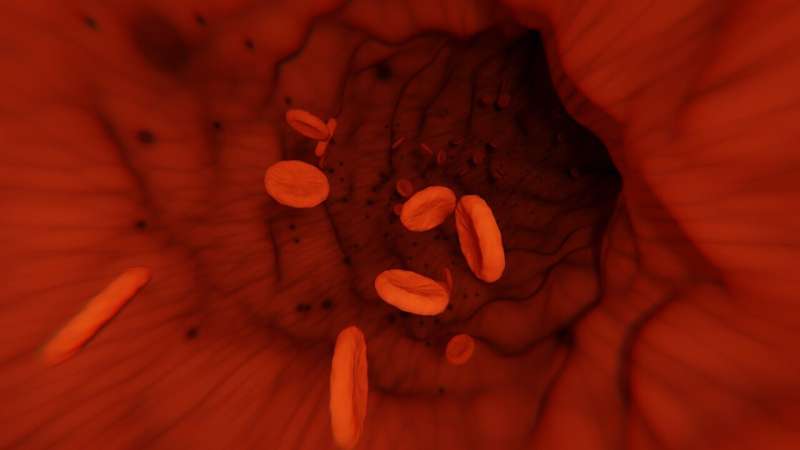This article has been reviewed according to Science X's editorial process and policies. Editors have highlighted the following attributes while ensuring the content's credibility:
fact-checked
peer-reviewed publication
trusted source
proofread
Engineered platelets can induce anti-inflammatory, immunosuppressive response, finds scientist

New research led by a St. Michael's Hospital scientist reveals how platelets can inhibit inflammation and immune responses. The discovery, published in the journal Research, constitutes a fundamental re-understanding of platelets and could lead to potential therapies to treat autoimmune and alloimmune diseases, says Dr. Heyu Ni, a scientist at the Keenan Research Center for Biomedical Sciences.
Platelets are small blood cells that form clots to stop or prevent bleeding. Conventional thinking is that platelets contribute to inflammation and immunity. Chronic inflammation is bad for our health, and an overactive immune system—when the body triggers an immune response when there is no threat– can lead to autoimmune disorders such as multiple sclerosis, arthritis, lupus and type 1 diabetes.
An overactive immune response may also lead to alloimmune diseases and conditions such as allergies and failed organ transplants and blood transfusions.
"Traditional thinking of platelets is that they are pro-inflammation and pro-immunity, but we discovered, surprisingly, that they can do the opposite—they can inhibit inflammation and inhibit an immune response," said Ni. "This completely shifts our understanding of how platelets behave—a possible switch from foe to friend."
June Li and other trainees in Ni's lab made the discovery by immunizing mice that are missing two proteins: GPIbα and GPIIbIIIa. These proteins, both critical for stopping bleeding, are found on the surface of normal platelets.
The team immunized mice who lack these two proteins with normal platelets, expecting their immune systems to generate antibodies against GPIbα and GPIIbIIIa. They found that the mice struggled to generate antibodies against GPIbα. The team hypothesized this was because GPIbα has many sugars on its surface, making it difficult for the immune system to recognize it. The team then removed a part of these sugars, believing that by altering the sugars, they mice would recognize the protein and generate more antibodies.
The team unexpectedly found that these altered platelets—called desialylated platelets—did not result in more antibodies, but rather decreased antibody generation. They also found that the desialylated platelets were cleared from the body by the liver—not the spleen, where platelets are usually cleared.
After the platelets were cleared by the liver, cells called Kupffer cells generated an immunosuppressive and anti-inflammatory response in the mice. As platelet desialylation and clearance naturally occurs for all aged platelets in our bodies, this anti-inflammatory response may provide a daily preventive mechanism against many autoimmune diseases, said Ni.
Through pre-transfusion testing in mice, the team further found that desialylated platelets can also decrease the immune responses against non-platelet antigens. The team infused the mice with sheep red blood cells and coagulation factor VIII, a blood-clotting protein missing in people with hemophilia A.
Hemophilia A patients—who are at risk of excessive bleeding in injuries or after surgery—can be given factor VIII via infusion, but there is a risk that their immune system may produce antibodies against it. Engineered desialylated platelets could reduce the immune response and reduce this risk, said Ni.
Ni, also a senior scientist of Canadian Blood Services, said the discovery has important implications for autoimmune and alloimmune diseases, including cancer immunology, organ transplantation, and transfusion medicine.
"This type of transfusion with engineered desialylated platelets may be further developed to control lupus, arthritis and Type 1 diabetes and be beneficial in organ and tissue transplants," he said. "We don't know yet the full extent of the impact, but the potential opportunity is huge."
More information: June Li et al, Desialylated Platelet Clearance in the Liver is a Novel Mechanism of Systemic Immunosuppression, Research (2023). DOI: 10.34133/research.0236



















